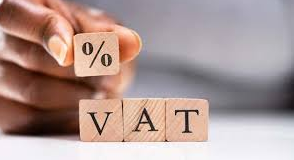 The rental income from immovable property in Cyprus is generally exempt from Value Added Tax (VAT). However, there are important exceptions to this rule that landlords—whether individuals or companies—should be aware of. Understanding when VAT applies is crucial to ensure legal compliance and effective tax planning.
The rental income from immovable property in Cyprus is generally exempt from Value Added Tax (VAT). However, there are important exceptions to this rule that landlords—whether individuals or companies—should be aware of. Understanding when VAT applies is crucial to ensure legal compliance and effective tax planning.
The imposition of VAT on rents in Cyprus is governed by the amendment Law to the Value Added Tax Law of 2000 (Law No. 95(I)/2000), Law 157(I)/2017 and the Interpretive Circular with Number 220. This law outlines the circumstances under which rental income becomes subject to VAT and provides the framework for exemptions and elections to tax.
Under the VAT Law, rentals of Commercial Properties (e.g. shops, offices, warehouses) are subject to VAT at the standard rate of 19%. This applies regardless of the duration of the lease. Residential Property Rentals are exempted from the VAT imposition.
The above amendment to the Law affects all leases and/or rentals of immovable property for which the commencement of the lease takes place on or after the date of its entry into force, i.e., 13/11/2017, and are carried out by a Lessor to another entity for the exercise of their commercial activity (e.g., delivery of goods or provision of services), which concerns taxable transactions. Therefore, lease contracts, made before the 13/11/2017, to entities carrying out taxable transactions are not affected by the said amendment, unless they are cancelled and a new contract is concluded after the entry into force of the Amending Law. In the case of an automatic renewal term, then this term in itself does not create a new contract for VAT purposes and therefore these contracts are not affected by the said amendment to the Law and this treatment still applies even in the case of an automatic increase in rent term.
The Lessee has the Right to Deduct the entire amount of Input Tax relating to the lease when he carries out entirely taxable transactions. However, in the event that he carries out both taxable and exempt transactions, then he must proceed to an allocation based on his tax situation, i.e. the percentage of his taxable and exempt transactions. Further criteria are also applied.
The Lessor has a Right of Exemption from VAT. The subjection or not of the lease of immovable property to VAT is not a choice of the Lessor of the property, but occurs automatically if the Lessor is a taxable person and concerns the entire property or building complex. The Lessee of the property, as mentioned before, must be a taxable person who carries out taxable transactions for VAT purposes. For the purposes of implementing this provision, the Tax Department accepts the lease of immovable property as a taxable transaction when the lessee’s taxable transactions amount to at least 90% of his total outputs. The Lessor is obliged to obtain all necessary information and, or, a certificate from the Lessee regarding the nature of the transactions he carries out. In the event that these include exempt transactions, he must obtain information regarding their amount. The Lessor’s control must be carried out at the time of signing the contract and he has no obligation to monitor the Lessee’s transactions afterwards to ascertain that they are within the regulated 90-10 ratio.
Further to the above, the lessor may choose an exemption from the imposition of VAT if he informs the VAT Department that he does not wish the lease the specific property to be subject to VAT. In such a case, the Lessor is not obliged and/or does not have the right –depending on the case– to register in the VAT register, always assuming that he does not make other transactions that are subject to VAT.
It is important to note that, once the option to subject or not the lease of immovable property to VAT has been exercised, it cannot be changed later, therefore this will also concern any new lease agreement in relation to the property in question. The solemn declaration ceases to be valid when there is a change in the ownership of the immovable property and in that case the new owner has the right to decide again whether to submit a new declaration for non-submission of VAT on a lease contract.
The obligation to register in the VAT Register follows the usual rules regarding registration, i.e. the value of his taxable transactions must exceed the amount of €15,600 during one year. In order to establish the obligation to register a person in the VAT Register, he must necessarily present the lease agreement which creates the obligation to register. The taxation may concern the whole or part of the property or the building complex. For the decision not to tax part of the property or building complex, the lessor must inform the VAT Department.
In the event that the owner or administrator of a property grants a right to exploit to another person (either through a simple contract or by granting a right of property usufruct), the obligation to tax exists for both persons.
In the event of co-ownership of the property, taxation is required to be exercised jointly. However, for VAT purposes, only one registration as a partnership will be made.
Lease constitutes a continuous provision of a service and the tax should be paid on the rent received. Therefore, if the agreement provides for payment of rents from time to time, VAT is paid at the earliest upon issuance of a VAT invoice or payment of rents.
In conclusion, both Lessors and Lessees should carefully assess their situation and consult a Professional to ensure compliance and take advantage of available VAT recovery options.
